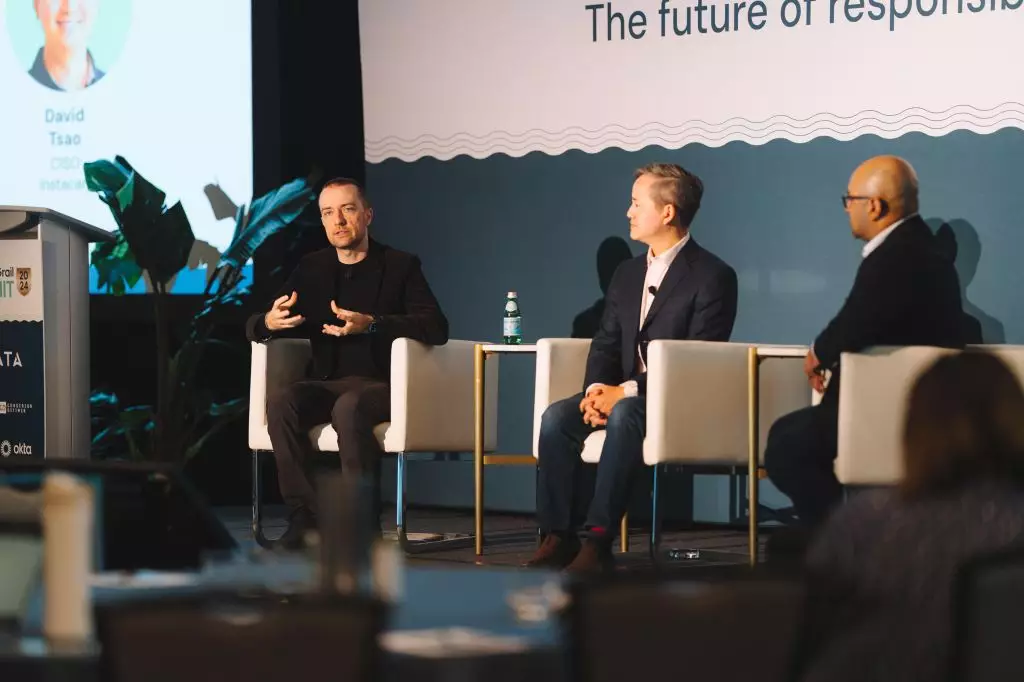At the DataGrail Summit 2024, industry leaders gathered to discuss the rapidly advancing risks associated with artificial intelligence. Dave Zhou, CISO of Instacart, and Jason Clinton, CISO of Anthropic, emphasized the urgent need for robust security measures to keep pace with the exponential growth of AI capabilities. During a panel titled “Creating the Discipline to Stress Test AI – Now – for a More Secure Future,” they highlighted both the thrilling potential and the existential threats posed by the latest generation of AI models.
Jason Clinton, who operates at the forefront of AI development, pointed out the exponential increase in the total amount of compute used to train AI models. He warned that this rapid growth is pushing AI capabilities into uncharted territory, where today’s safeguards may quickly become obsolete. Planning for the future of AI requires anticipating the exponential curve of progress and the emergence of new architectures and technologies.
Dave Zhou at Instacart faces immediate and pressing challenges in overseeing the security of vast amounts of sensitive customer data. He highlighted the unpredictable nature of large language models (LLMs) and the security implications of AI-generated content. Zhou stressed the importance of aligning AI models to answer questions in a secure manner to avoid potential harm or erosion of consumer trust.
Speakers at the summit called for companies to invest heavily in AI safety systems and security frameworks. Zhou urged companies to balance their investments by allocating resources to AI safety systems, risk frameworks, and privacy requirements. Without a strong focus on minimizing risks, companies could be opening themselves up to disaster as AI technologies continue to evolve rapidly.
Jason Clinton provided a glimpse into the future of AI governance, emphasizing the need for vigilance in the face of increasing AI intelligence. He discussed experiments with neural networks that revealed complexities in AI behavior and the potential dangers of unknown neural network structures. As AI becomes more deeply integrated into critical business processes, the potential for catastrophic failures grows, highlighting the importance of preparing for the future of AI governance.
The panels at the DataGrail Summit delivered a clear message: the AI revolution is not slowing down, and security measures must evolve to keep pace. Intelligence is indeed a valuable asset in organizations, but without proper safety measures, it can lead to disaster. The power of AI comes with unprecedented risks, and companies must not only harness this power but also navigate the risks ahead to ensure the safe and responsible use of artificial intelligence.
As CEOs and board members race to capitalize on AI innovation, they must also prioritize AI safety and security to mitigate the potential dangers associated with AI advancements. The future of AI governance will require a proactive approach to managing risks and ensuring that organizations are prepared to handle the challenges that come with the increasing integration of AI technologies into everyday business operations.

